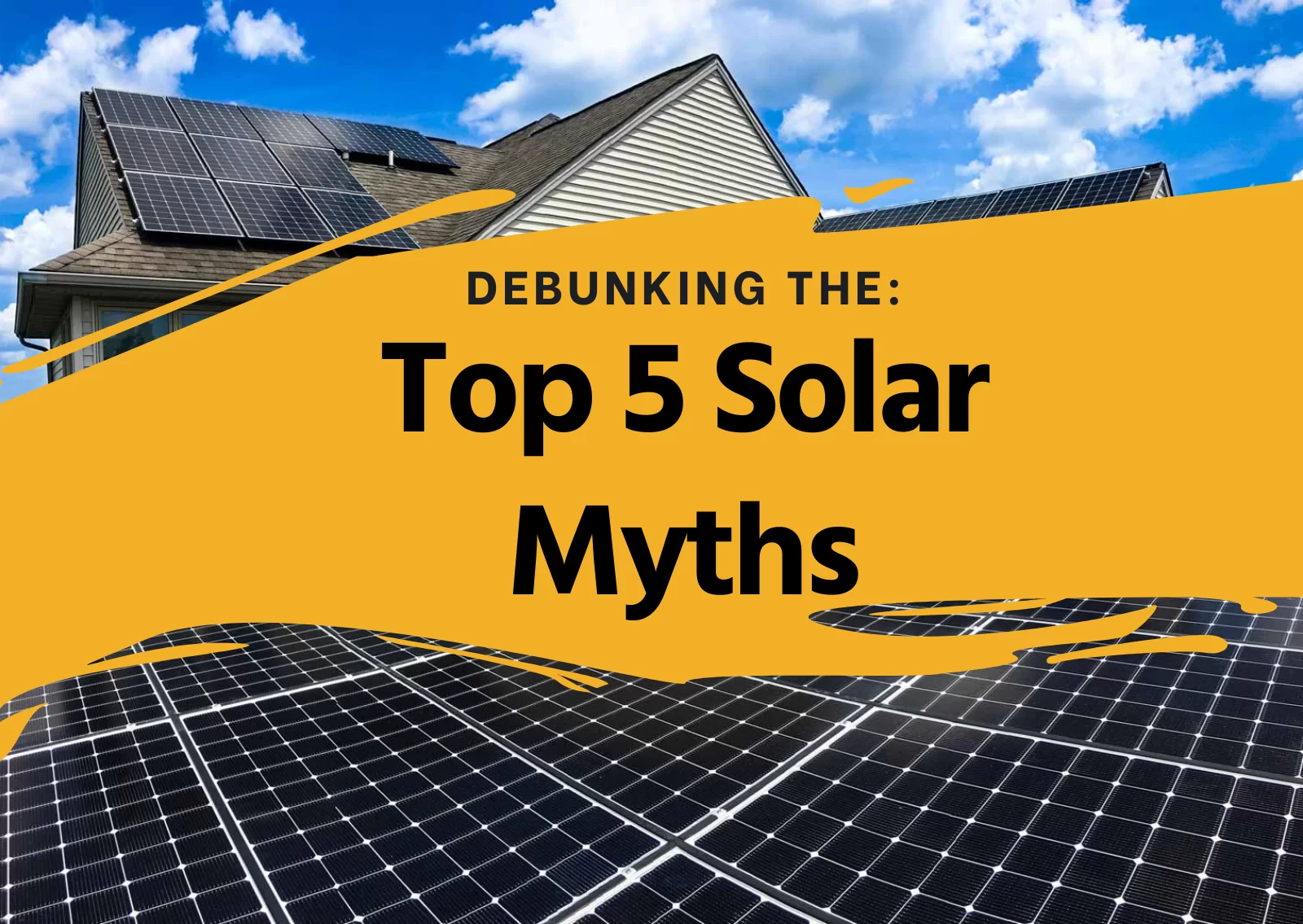Top 5 Solar Panel Myths & Misconceptions Debunked

Solar energy has gained tremendous popularity in recent years as an environmentally friendly and renewable source of power. However, despite its many benefits, there are still several myths and misconceptions surrounding solar panels. In this blog, we will debunk five major myths about solar panels to provide you with accurate information and help you make informed decisions about adopting solar energy.
Myth 1: Solar panels are too expensive.
Fact: While the upfront cost of solar panels may have been high in the past, the prices have significantly decreased over the years. In fact, the cost of solar panels has dropped by more than 70% in the last decade. Additionally, various government incentives, tax credits, and financing options are available to make solar panel installations more affordable. When considering the long-term benefits and energy savings, solar panels can be a cost-effective investment.
Myth 2: Solar panels only work in sunny climates.
Fact: Solar panels are designed to harness sunlight, not necessarily direct heat from the sun. While solar panels do generate more electricity in regions with abundant sunshine, they can still produce power in cloudy or overcast conditions. Modern solar panels are efficient enough to capture diffuse light and convert it into usable electricity. They continue to work even during winter months or in areas with lower sunlight intensity.
Myth 3: Solar panels require constant maintenance.
Fact: Solar panels are known for their durability and require minimal maintenance. They have no moving parts, reducing the chances of mechanical failure. Rainfall usually cleans the surface of the panels, and occasional rinsing or cleaning with water will remove any accumulated dirt or debris. Most solar panel manufacturers offer warranties, and regular inspections by professionals can help identify and address any potential issues.
Myth 4: Solar panels are inefficient and produce little power.
Fact: Solar panel technology has improved significantly, and modern panels are highly efficient. They can convert a significant portion of sunlight into electricity. The efficiency of solar panels is typically measured by their capacity to convert sunlight into usable energy, and most panels have an efficiency rating between 15% and 20%. Moreover, solar panels can be installed in arrays or multiple panels, allowing for increased power production and meeting the energy needs of households or businesses.
Myth 5: Solar panels are not suitable for residential use.
Fact: Solar panels are suitable for both residential and commercial use. In fact, residential solar installations have become increasingly popular, with homeowners recognizing the benefits of reducing electricity bills and environmental impact. Advances in solar technology and installation techniques have made it easier and more affordable to install solar panels on residential rooftops. Additionally, many utility companies offer net metering programs, allowing homeowners to sell excess electricity back to the grid, further offsetting their costs.
Conclusion
Solar panels offer numerous benefits, including cost savings, environmental sustainability, and energy independence. By debunking these five major myths and misconceptions, we hope to clarify any doubts and encourage individuals to consider solar energy as a viable option for their power needs. As technology continues to advance, solar panels are becoming more efficient, affordable, and accessible, making them a practical choice for a greener future. If you are considering adding solar to your home, contact our team of solar experts here.


